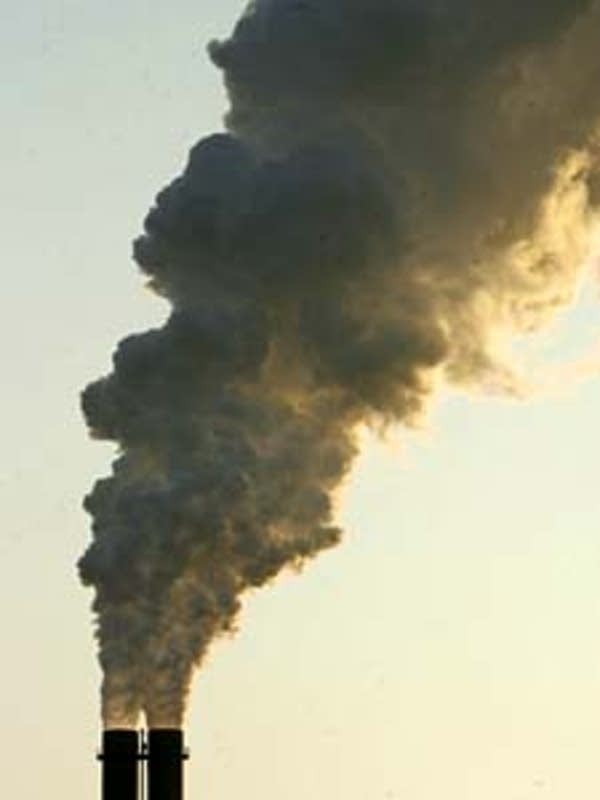New climate change case headed to Supreme Court
Go Deeper.
Create an account or log in to save stories.
Like this?
Thanks for liking this story! We have added it to a list of your favorite stories.

By MARK SHERMAN, Associated Press
WASHINGTON (AP) - The Obama administration and environmental interests generally agree that global warming is a threat that must be dealt with.
But they're on opposite sides of a Supreme Court case over the ability of states and groups such as the Audubon Society that want to sue large electric utilities and force power plants in 20 states to cut their emissions.
The administration is siding with American Electric Power Co. and three other companies, including Xcel Energy of Minnesota, in urging the high court to throw out the lawsuit on grounds the Environmental Protection Agency, not a federal court, is the proper authority to make rules about climate change. The justices will hear arguments in the case Tuesday.
Turn Up Your Support
MPR News helps you turn down the noise and build shared understanding. Turn up your support for this public resource and keep trusted journalism accessible to all.
The court is taking up a climate change case for the second time in four years. In 2007, the court declared that carbon dioxide and other greenhouse gases are air pollutants under the Clean Air Act.
By a 5-4 vote, the justices said the EPA has the authority to regulate those emissions from new cars and trucks under that landmark law. The same reasoning applies to power plants.
The administration says one reason to end the current suit is that the EPA is considering rules that would reduce carbon dioxide emissions from power plants. But the administration also acknowledges that it is not certain that limits will be imposed.
At the same time, Republicans in Congress are leading an effort to strip the EPA of its power to regulate greenhouse gases.
The uncertainty about legislation and regulation is the best reason for allowing the case to proceed, said David Doniger, a lawyer for the Natural Resources Defense Council, which represents Audubon and other private groups dedicated to land conservation.
"This case was always the ultimate backstop," Doniger said, even as he noted that the council would prefer legislation or EPA regulation to court decisions.
The suit would end if the EPA does set emission standards for greenhouse gases, he said.
The legal claims advanced by six states, New York City and the land trusts would be pressed only "if all else failed," he said.
When the suit was filed in 2004, it looked like the only way to force action on global warming. The Bush administration and the Republicans in charge of Congress doubted the EPA's authority to regulate greenhouse gases.
Federal courts long have been active in disputes over pollution. But those cases typically have involved a power plant or sewage treatment plant that was causing some identifiable harm to people, and property downwind or downstream of the polluting plant.
Global warming, by its very name, suggests a more complex problem. The power companies argue that any solution must be comprehensive. No court-ordered change alone would have any effect on climate change, the companies say.
"This is an issue that is of worldwide nature and causation. It's the result of hundreds of years of emissions all over the world," said Ed Comer, vice president and general counsel of the Edison Electric Institute, an industry trade group.
The other defendants in the suit are Cinergy Co., now part of Duke Energy Corp. of North Carolina; Southern Co. Inc. of Georgia; Xcel Energy Inc. of Minnesota; and the federal Tennessee Valley Authority. The TVA is represented by the government and its views do not precisely align with those of other companies.
Eight states initially banded together to sue. They were California, Connecticut, Iowa, New Jersey, New York, Rhode Island, Vermont and Wisconsin. But in a sign of the enduring role of partisan politics in this issue, New Jersey and Wisconsin withdrew this year after Republican replaced Democrats in their governor's offices.
Another complication is that the administration and the companies may be on the same side at the Supreme Court, but the power industry is strongly opposing climate change regulation. The Southern Co. is a vocal supporter of GOP legislation to block the EPA from acting.
"It's two-faced for them (the companies) to come into court and say everything is well in hand because EPA is going to act," said Doniger, the NRDC lawyer.
Comer said the key point is that judges should not make environmental policy.
"This has important implications for jobs. If you raise energy costs in the U.S., does that lead industry jobs to go elsewhere and if it does, do you get the same emissions, just from another country?" Comer said. "These judgments are properly made by elected officials."
Justice Sonia Sotomayor, who was on the federal appeals court panel that heard the case, is not taking part in the Supreme Court's consideration of the issue.
The case is American Electric Power Co. v. Connecticut, 10-174.
(Copyright 2011 by The Associated Press. All Rights Reserved.)




